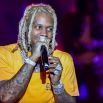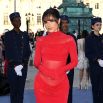Korean music continues to find fan bases all over the world and of course in its homeland. It kind of makes us wonder however, is there similar pop talent in North Korea? It seems likely but it would be tough for music fans to find out. After all, it's hard enough to get hard news from what's probably the world's most isolated nation. That said, the West has gotten word of North Korean music over the years and some of it isn't half bad. Check out five of the biggest acts that the northern half of the Korean peninsula claims for its own.
Isang Yun
Isang Yun is held as a national icon of sorts in North Korea although it's debatable whether he should be. What's not questionable is whether he should be held in esteem for his work as a whole (the answer is yes). Yun left his home (in what is now South Korea) following the Korean War before truly cultivating a career in Germany. He's a notable composer worldwide for his avant garde symphonies and experimentation with Schoenberg's 12-tone technique, but more noted in the Koreas for his supposed support of the North Korean regime. Admittedly, Yun spent probably a little too much time with then dictator Kim Il-Sung but he was probably still mad about the time the South Korean government kidnapped him during 1967. Music festivals are still held in his honor in Pyongyang, nearly 20 years after his death.
The Sea of Blood Opera Troupe
The Sea of Blood Opera Troupe didn't always have such a metal title. It was formerly known as the North Korean Opera Troupe from its founding in 1946 up until 1971. What happened in between was that then dear leader Kim Il-Sung wrote an opera titled Sea of Blood. It was essentially propaganda in its most effective form: detailing the brutal massacre of Koreans during Japanese occupation and then how the protagonist used self-reliance and affiliation with the communist revolution to overcome. The national opera troupe played the work so many times that it simply switched its name to the same title. The piece has been shown in Pyongyang, by estimate, more than 1,500 times since.
Pochonbo Electronic Ensemble
The Pochonbo is somewhat of The Beatles...no, more The Rolling Stones of North Korea...which isn't saying much. Our comparison doesn't come at all from the fact that the group plays rock music (it doesn't) but that it's been around a fairly long time and has a lot of recordings under its discography. Also, unlike the Electronic Light Orchestra, "electronic" is not really a necessary part of the band's performances. The PEE (we couldn't help ourselves) is named after the battle of Poch'onbo—a major point in the heroic biography of Kim Il-Sung—and has recorded versions of traditional Korean revolutionary and folk songs. It's most notable achievement is not having a single Christmas record in its 150-plus album catalogue. Hyon Song-wol was a famous vocalist for the group but we'll get to her when we discuss the...
Wangjaesan Light Music Band
Remember the late '90s when all those boy bands just kind of appeared at the same time, offering a similar product at varying levels of quality? The early '80s were kind of like that in the early '80s but the bands produced were methods of propaganda operated by the government. This group, essentially the same as the aforementioned Pochonbo Electronic Ensemble, was also named after a battle that Il-Sung fought at. The reason why this group (and the aforementioned) may sound more familiar to Western readers is because they were both involved in a sensationalistic story during 2013 where current dear leader Kim Jong-Un had ex-girlfriend Song-Wol executed by firing squad, allegedly for pornography charges. And, because this is North Korea, members of both bands were killed and the groups disbanded in the process. None of this turned out to be true thankfully (just South Korean TMZ-type stuff) but it's sad how unsurprised we were at the time.
Moranbong Band
The world was shocked, and pleasantly so, when it got wind of the Moranbong Band, North Korea's first all-female pop group. The members of the group were handpicked by Kim Jong-Un, who reportedly realized that the new century required new ideas, such as female independence in music (better late than never). The group was especially surprising to Western viewers due to its bright colors and short skirts, akin to the pop acts of neighboring South Korea. Interesting theories arose that the performance was actually a subliminal attempt to promote the nation's textile industry.
© 2025 MusicTimes.com All rights reserved. Do not reproduce without permission.




